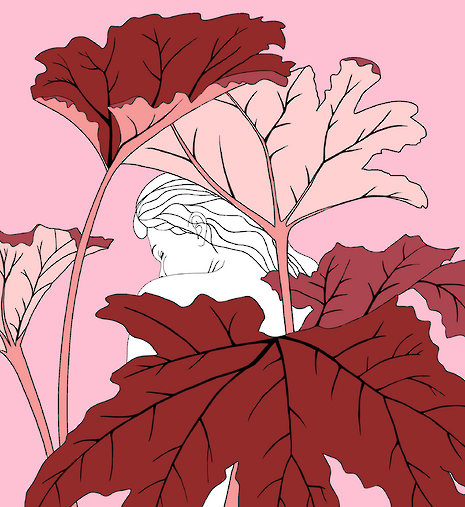Finding a path forward
In her first column on navigating student life as a disabled Muslim woman of colour, Inaya Mohmood reflects on her experiences with anxiety

I only started using the word anxiety to describe my condition a couple of years ago. Before then, I didn’t know that everything I was experiencing — the panicking, the overthinking, and the constant worrying — came under the umbrella of anxiety. I remember being a child and googling ‘why do I worry so much?’ into my dad’s iPad. I really did just think I was a worrier, and that it was a phase I would naturally grow out of. It was in sixth form, when conversations surrounding mental health began to happen more regularly, that I came to realise that mental illnesses could be just as debilitating as physical ones.
At Cambridge, I’ve come across some of the most open-minded and accepting people I’ve ever met. Many have become my closest friends and trusted allies when it comes to my struggles with mental health. We support each other and accept each other for who we are. But I’ve also encountered plenty of ignorance as well, and at the moment, I don’t always respond to comments or assumptions the way I would like to. So below is a list of some basic pointers about my anxiety that I would like others to know.
Tackling people’s assumptions about me is all part of the process
First, there’s more to anxiety than simply ‘being shy.’ I’m not shy. I’m funny, I’m super awkward, I make bad puns, I laugh at everything, I can’t say no to anyone, and it might take a while for me to be myself, but I’m not shy. I would love to be able to walk into a room confidently and strike up a conversation with the first person I run into. Instead, I have to walk in with people I know. I always joke to my friends that I need them to feel ‘flanked,’ but the truth is that I have to feel like I’m blending in. This means that if I don’t already know you, it’s unlikely I’ll talk to you first. Even if you’re the friendliest and most approachable person in the room, I’ll still find a way to talk myself out of coming up to you.
Secondly, I’m not just using my anxiety as an excuse to get out of going places. I was travelling with a friend recently, and I can’t quite remember how exactly it came up in conversation, but they told me that I was just using my anxiety as a ‘get out of jail free card’ when it came to commitments. I know that they weren’t being malicious, and if you haven’t ever experienced the crippling hold of anxiety, I can see why perhaps you’d be less empathetic towards someone who suffers from it. I know my anxiety is all ‘in my head,’ but that doesn’t make it any less real to me, and remarks that imply I use my anxiety to avoid hanging out and doing stuff with others are invalidating.
Thirdly, living with anxiety isn’t as simple as just ‘seeing a therapist’ or ‘getting counselling.’ I’ve had people give this advice to me before, and I understand that it does seem like a logical suggestion. But I think we put too much emphasis on simply telling people to go 'see a therapist' or 'get counselling' without really considering how, for many, socio-cultural background and personal circumstances might mean that these are not viable or even helpful options.
For me, the hardest part of seeking professional help is finding a qualified therapist that I am comfortable speaking and opening up to. I wasn’t raised in a household or schooled in an environment where mental health could be spoken about, and I never had the opportunity whilst growing up to sit down and have a frank conversation with anyone, whether family or friend, about my anxiety. And to be honest, I’m not sure how ready I’ll ever be. For me, opening up to a stranger, especially a stranger who most likely won’t understand the cultural nuances of my anxiety, isn’t easy.
I am self-aware about my anxiety, and I acknowledge that it’s something I’ll always have to work on. Whether that be through experimenting with different forms of counselling and therapy, or continuing to practice more spiritual methods like reading the Namaaz and Qur’an, is entirely up to me.
There is no quick solution to anxiety, and I’m allowed to take as long as I need to figure it out. I might almost be twenty but there’s still so much I need to learn and so many ways I can grow, and tackling people’s assumptions about me is all part of the process.
 News / University Council rescinds University Centre membership20 February 2026
News / University Council rescinds University Centre membership20 February 2026 News / Hundreds of Cambridge academics demand vote on fate of vet course20 February 2026
News / Hundreds of Cambridge academics demand vote on fate of vet course20 February 2026 News / Judge Business School advisor resigns over Epstein and Andrew links18 February 2026
News / Judge Business School advisor resigns over Epstein and Andrew links18 February 2026 News / Union cancels event with Sri Lankan politician after Tamil societies express ‘profound outrage’20 February 2026
News / Union cancels event with Sri Lankan politician after Tamil societies express ‘profound outrage’20 February 2026 News / Caius students fail to pass Pride flag proposal20 February 2026
News / Caius students fail to pass Pride flag proposal20 February 2026










